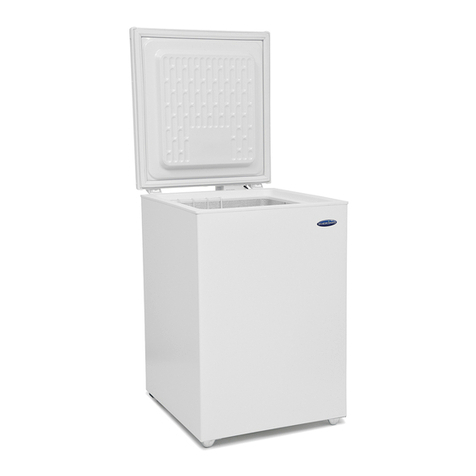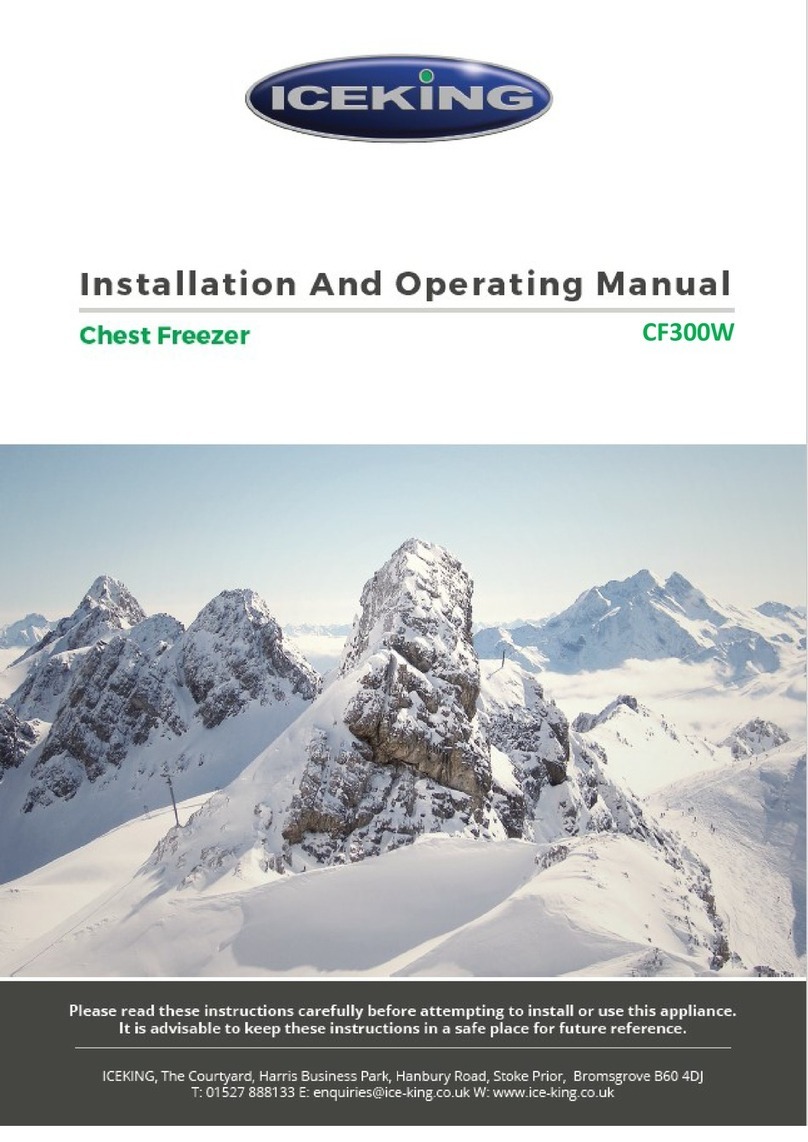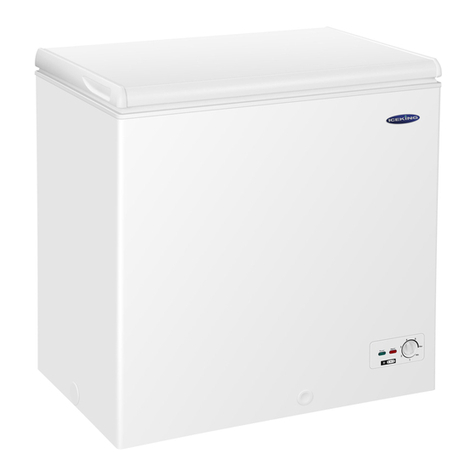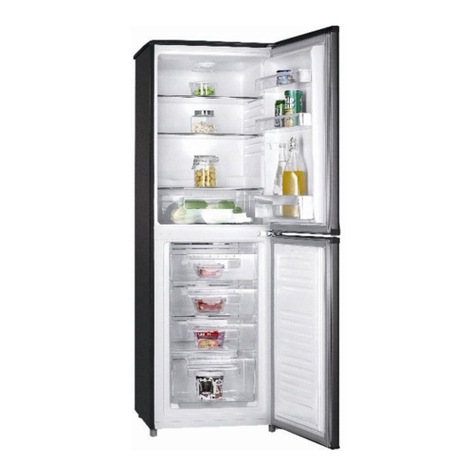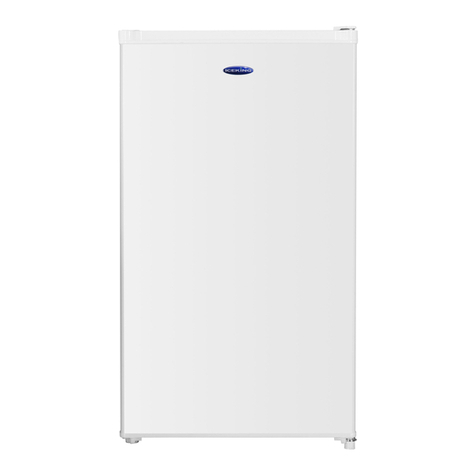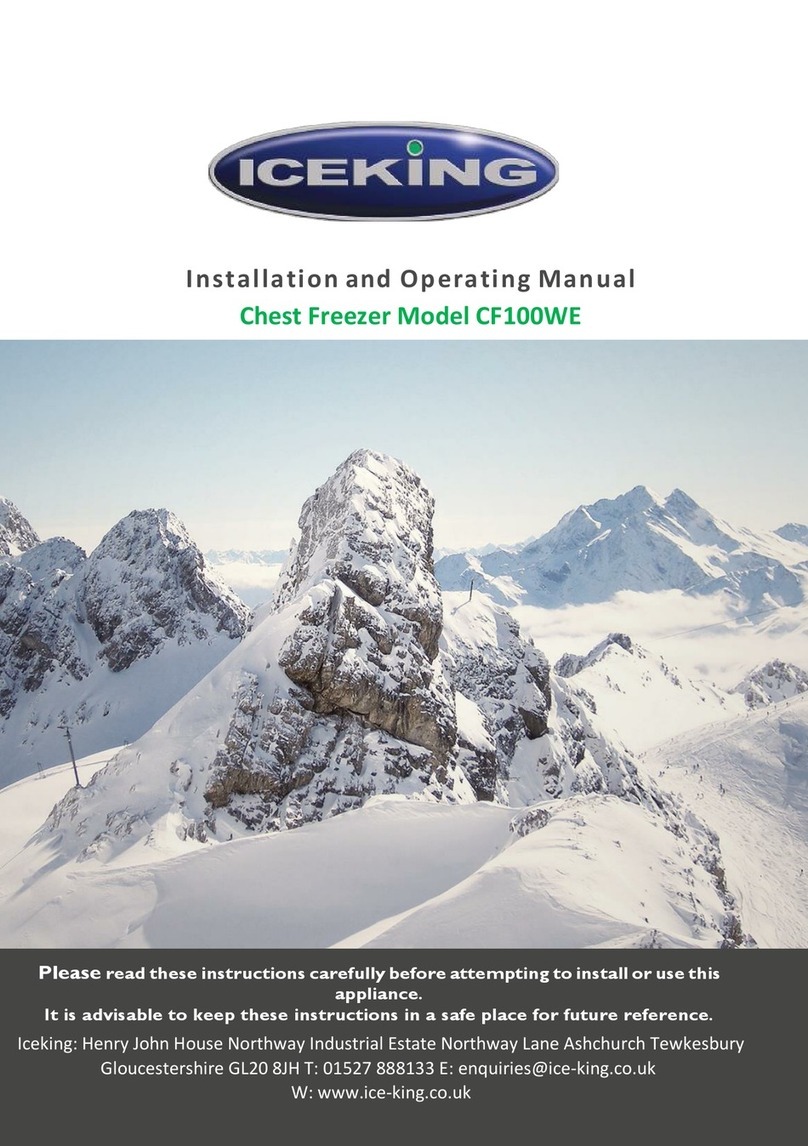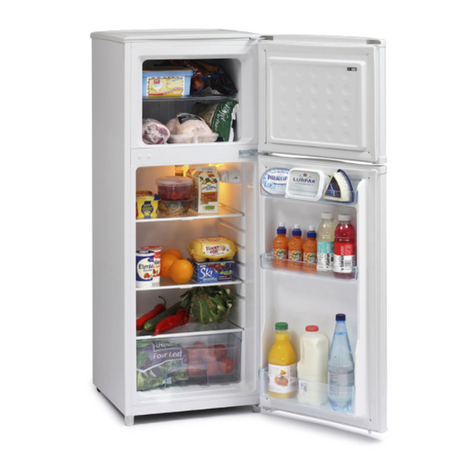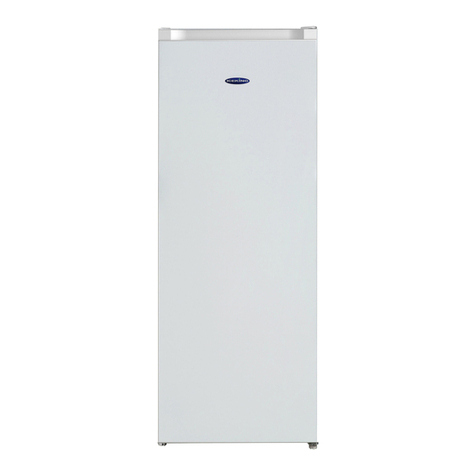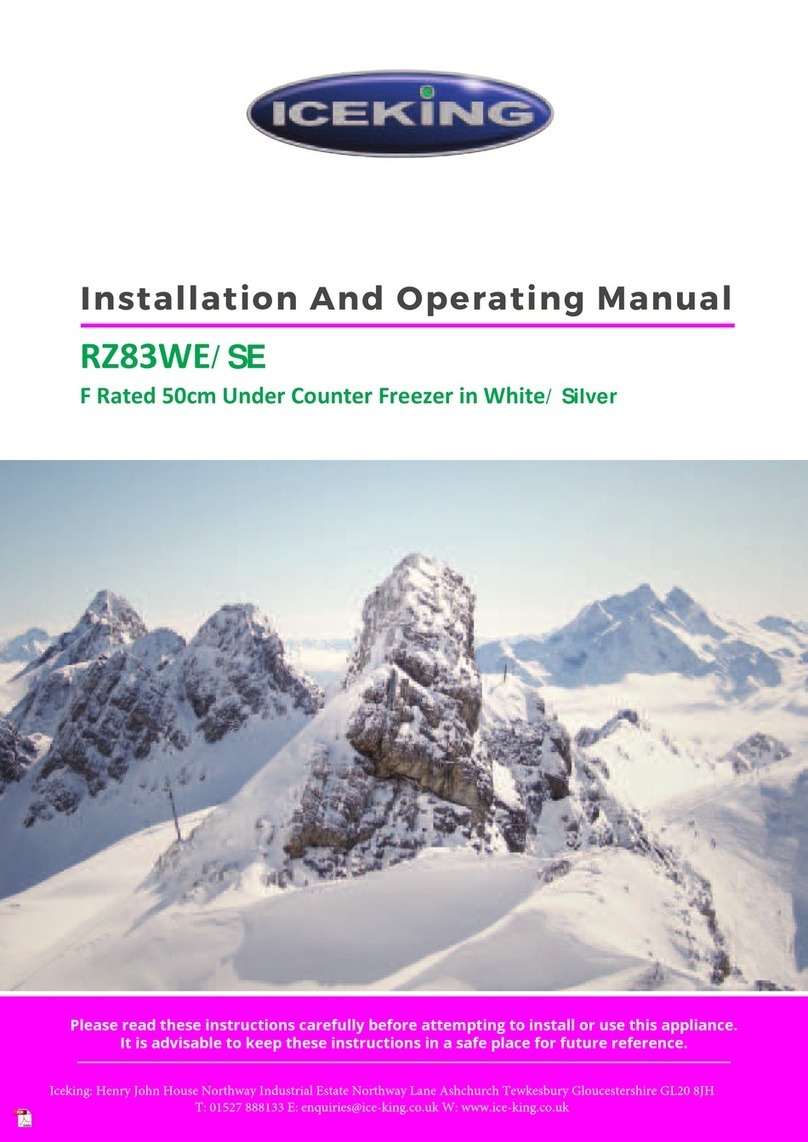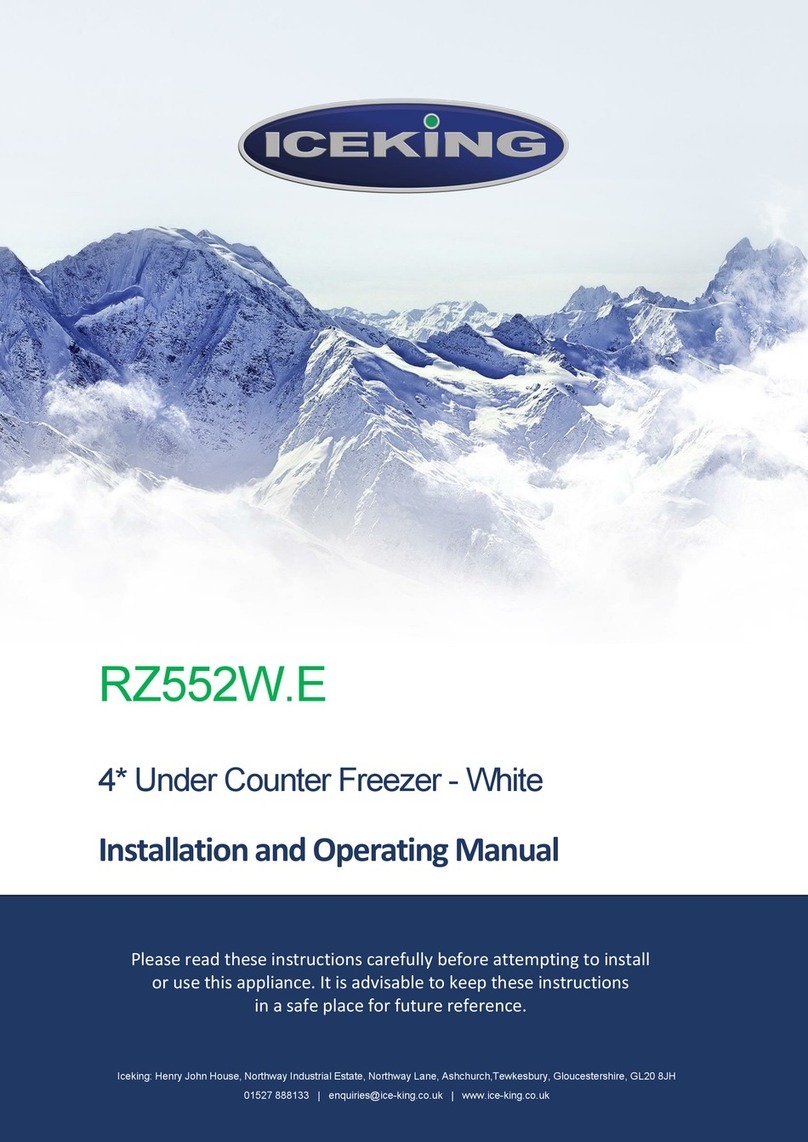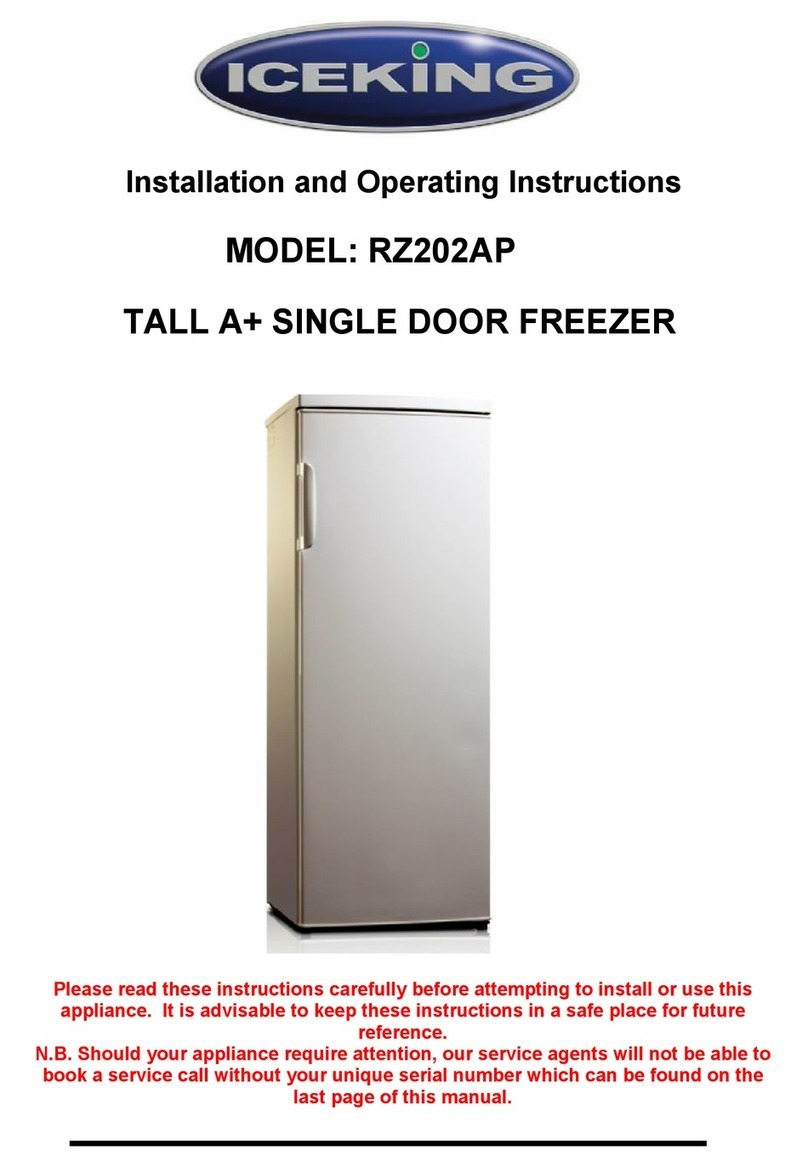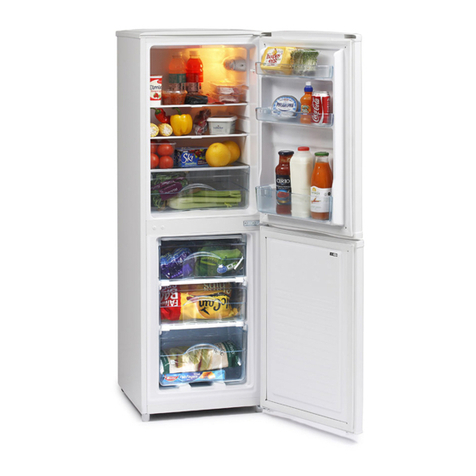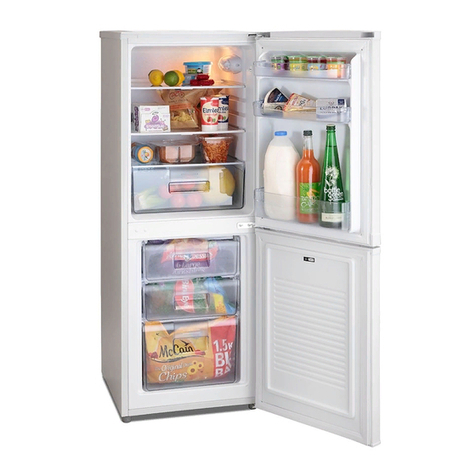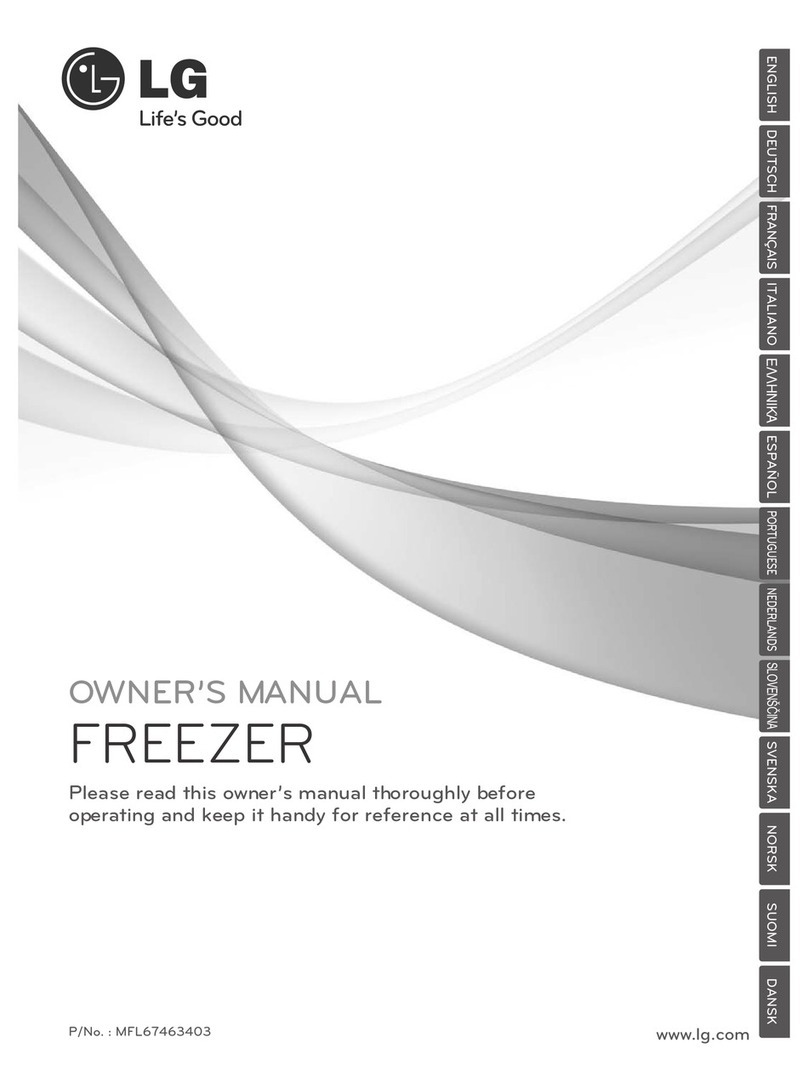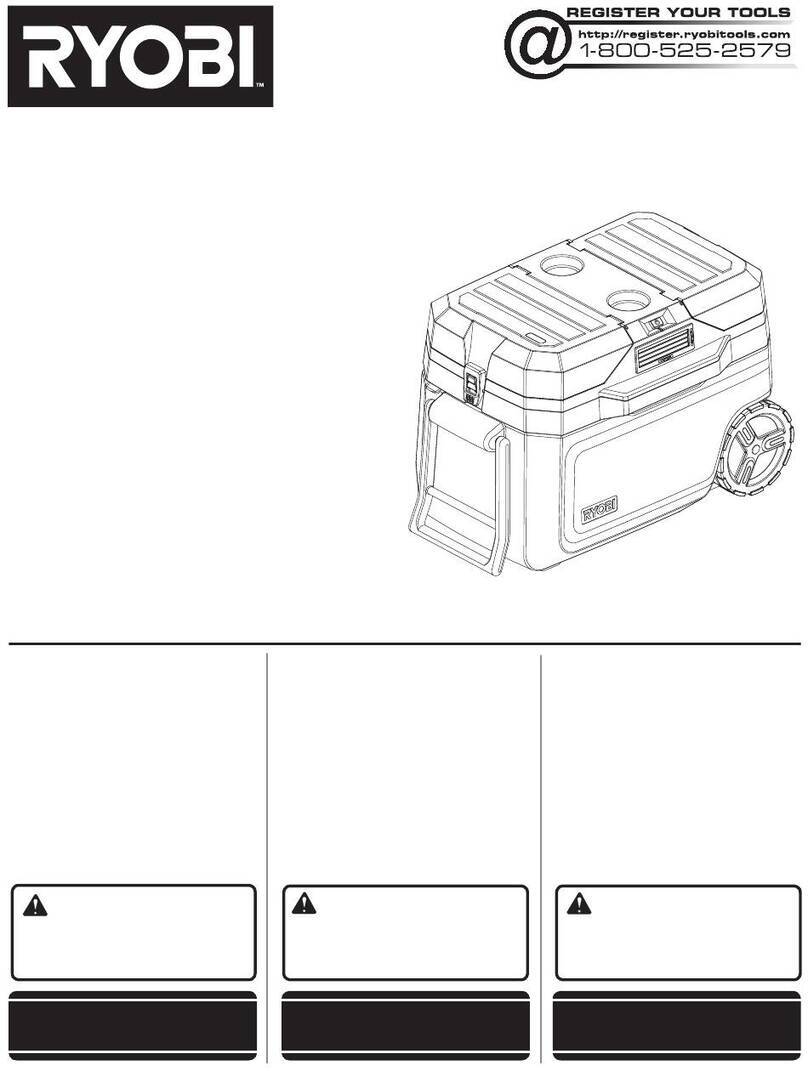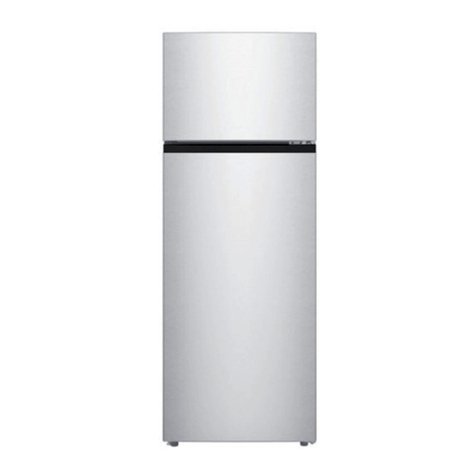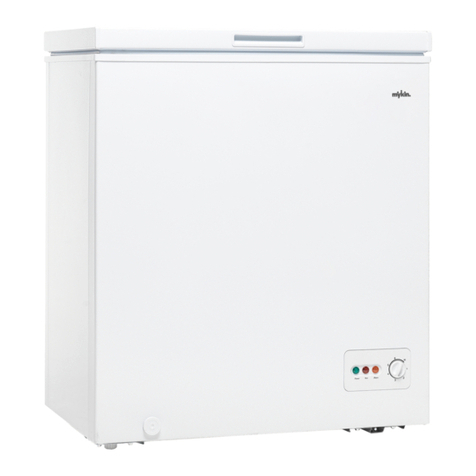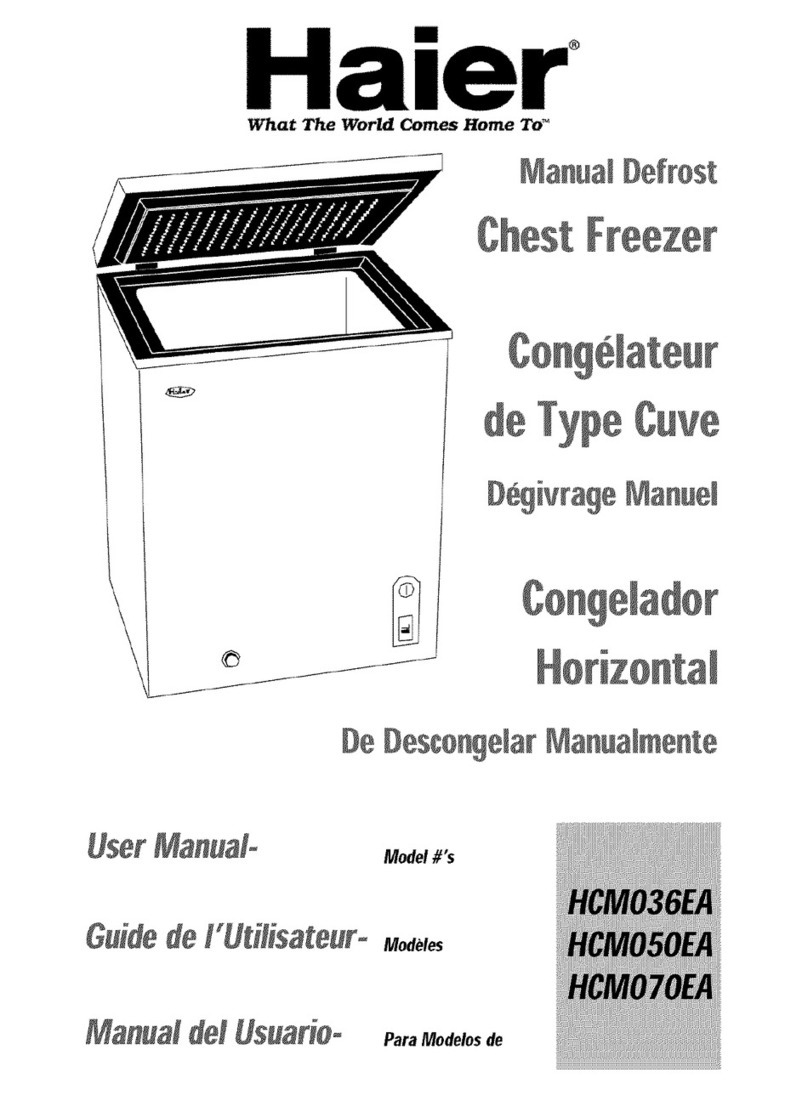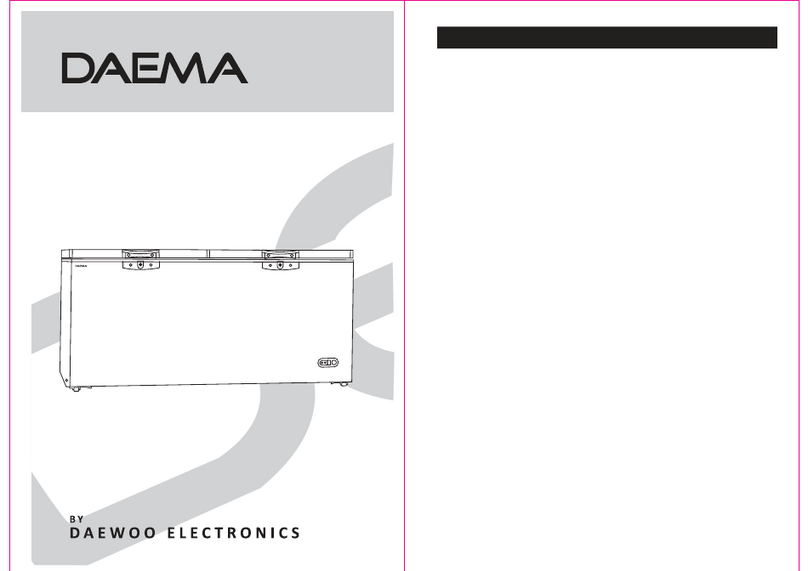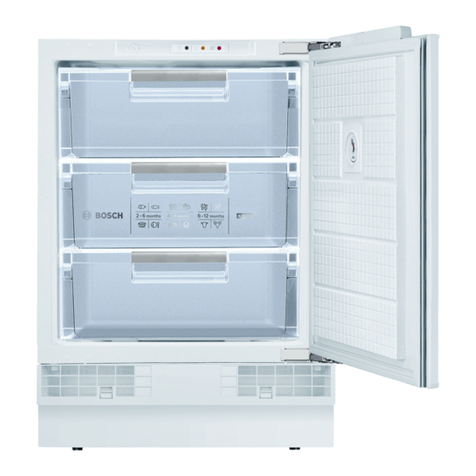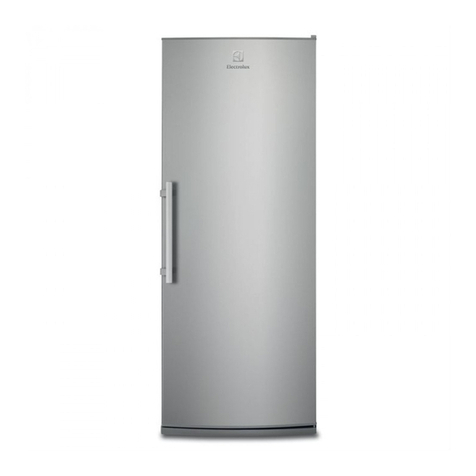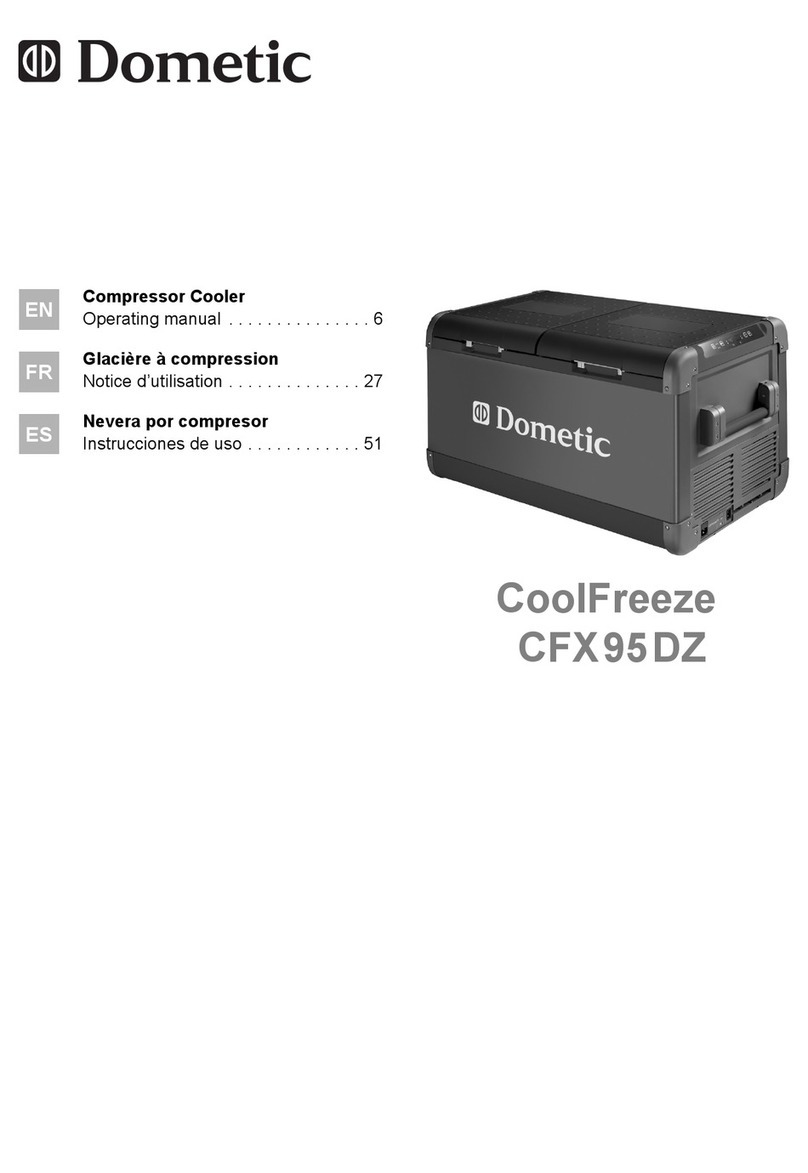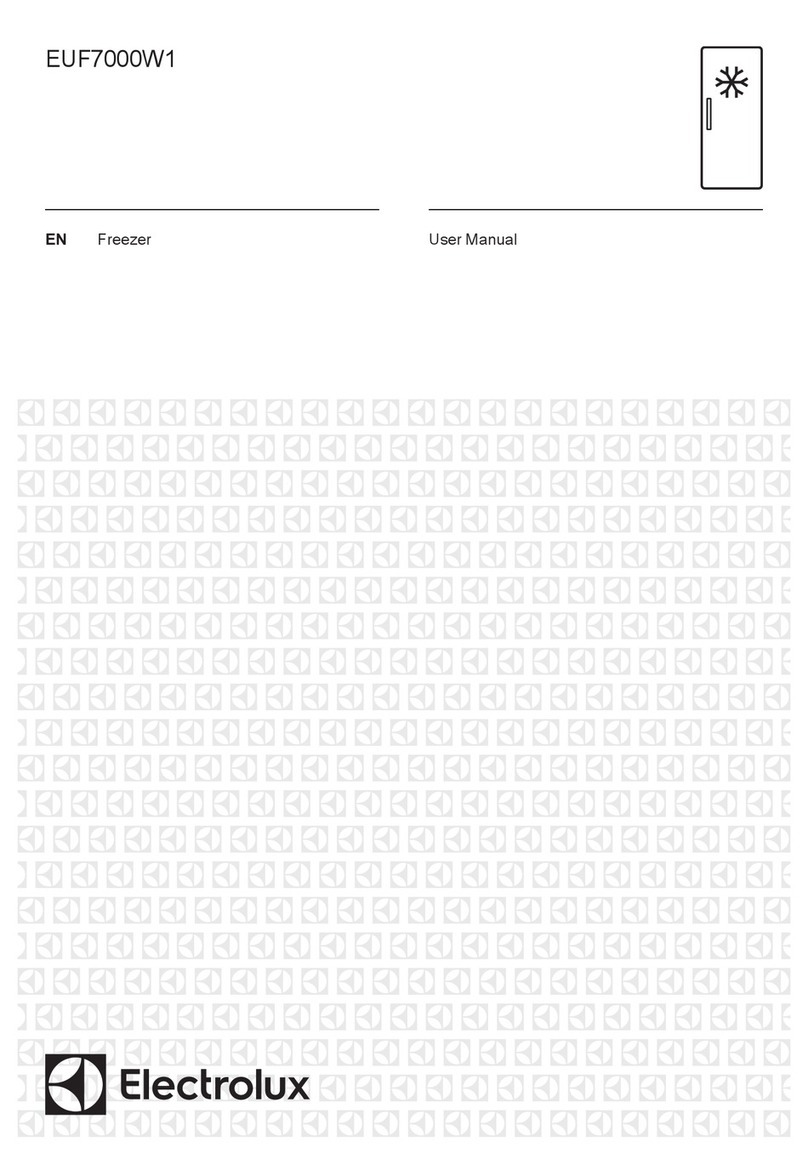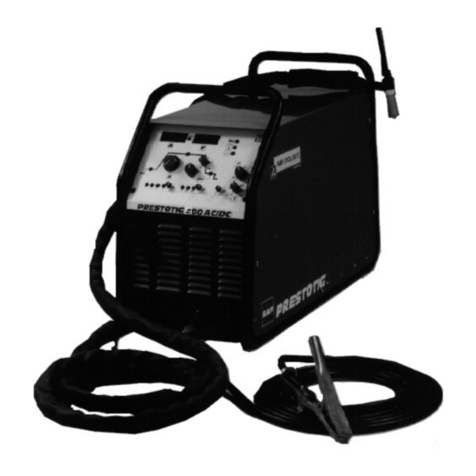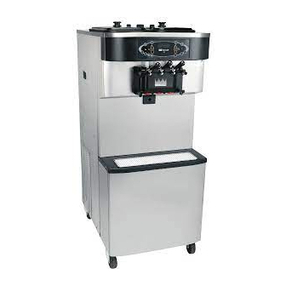
8
Section 4. Maintenance
Before any maintenance or cleaning work is carried out, DISCONNECT the
appliance from the ELECTRICITY supply.
4.1. Internal Cleaning
Clean the interior and accessories with warm water and bicarbonate of soda (5ml to 0.5
litre of water). Rinse and dry thoroughly. Do not use detergents, abrasive powders,
highly perfumed cleaning products, wax polishes or cleaning products containing bleach
or alcohol.
4.2. External Cleaning
Wash the outer cabinet with warm soapy water. Do NOT use abrasive products. There
may be sharp edges on the underside of the product, so care should be taken when
cleaning. Once or twice a year dust the rear of the appliance and the compressor at the
back of the appliance, with a brush or vacuum cleaner, as an accumulation of dust will
affect the performance of the appliance and cause increased energy consumption.
4.3. Defrosting
The fridge compartment will automatically defrost itself. However, you will need to
defrost the freezer periodically. When ice build up in the freezer exceeds 3-5mm, empty
the contents and switch off the appliance, leave the door open and allow the ice to melt.
Place the frozen foods items in a cool-bag or wrap them in thick newspaper. Do not
use sharp objects to scrape the ice away. Clean and dry the interior, close the door
and turn on the power to the appliance. When the power has been restored the
appliance will start to operate but it may take some time to achieve the pre-set operating
temperature.
4.4. When the appliance is not in use
When the appliance is not in use for long periods, remove the contents, disconnect
from the electricity supply and clean the appliance, leaving the door ajar until you wish
to use the appliance again.
4.5. Changing the Interior Light
Switch off the power supply to the appliance
Remove the plastic light cover
Remove the bulb from the light unit.
Replace the bulb with a suitable replacement (10W)
Refit the cover and switch the appliance back on.

